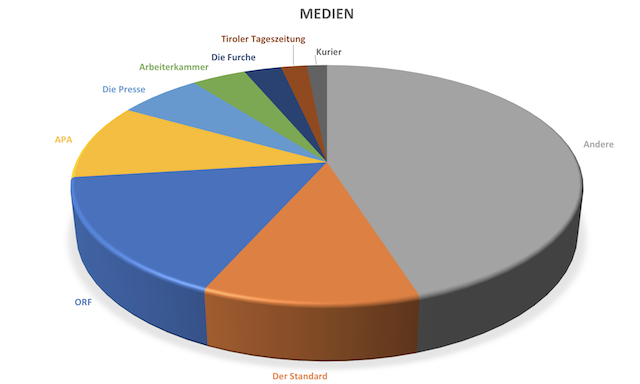2016 to 2018 was a busy time for tech and innovation journalists. The ITA helped to stir public debates about data-mining with its studies for its long-term cooperation partner, the Austrian Chamber of Labour. Studies looked at online gaming, smart phones and autonomous cars as tools for excessive data collection and analysed the implications of hidden credit scoring.
Another highlight was the public announcement of the ITA and its partner organization as official advisors to the Austrian Parliament. For the first time, following similar models in other countries, parliamentarians will take into consideration the knowledge provided by technology assessment. Subsequently, the EPTA, the network of institutions actively pursuing parliamentary technology assessment in Europe, held its conference at the Austrian parliament.
Artificial Intelligence
The ITA concentrated a significant amount of its resources on digitalization and artificial intelligence. Industry 4.0 and the robotic revolution were the subject of critical analysis. „Digital Breakdown“, an ITA-authored report published by the Austrian Academy of Sciences on the dangers to our digital infrastructure, was featured in multiple articles. In their latest project titled “The social effects of artificial intelligence”, data protection and privacy experts Johann Čas and Jaro Krieger-Lamina will examine the effects of AI applications in which human decisions will be largely taken over by algorithms in the near future. Senior Researcher Astrid Mager has garnered significant media interest with her project on European search engines and their role in shaping socio-cultural environments. She asks the question what role common social values and collective visions play at the development stage.
Drones over Vienna
ITA-director Michael Nentwich established himself as an expert on drones in the Austrian media landscape publishing studies on delivery drones, the legal situation regarding traffic laws as well as pros and cons of drone use in the public sphere. ITA deputy director Walter Peissl was featured on TV as well as radio talking about the new European Data Protection Act and the effects of digitalization on workers’ rights.
Neutrality and Responsibility
Several projects followed up on the EU’s declared goal of achieving “responsible research and innovation” (RRI): Alexander Bogner, Daniela Fuchs and Anja Bauer examined the question of how civil society can sensibly be integrated in research policy decisions. Ulrike Bechtold published a book on “Dialogues about Active and Assisted Living“, discussing the interplay between the needs of the elderly, health experts’ opinions and technologies designed for an autonomous life.
Last but not least, the latest ITA conference in Vienna caused a stir when one of the guest speakers, Pierre Delvenne from the University of Liège, called for an end of neutral technology assessment. A heated debate on the possibility of neutrality in Europe’s changing political landscape ensued.
By: Denise Riedlinger



